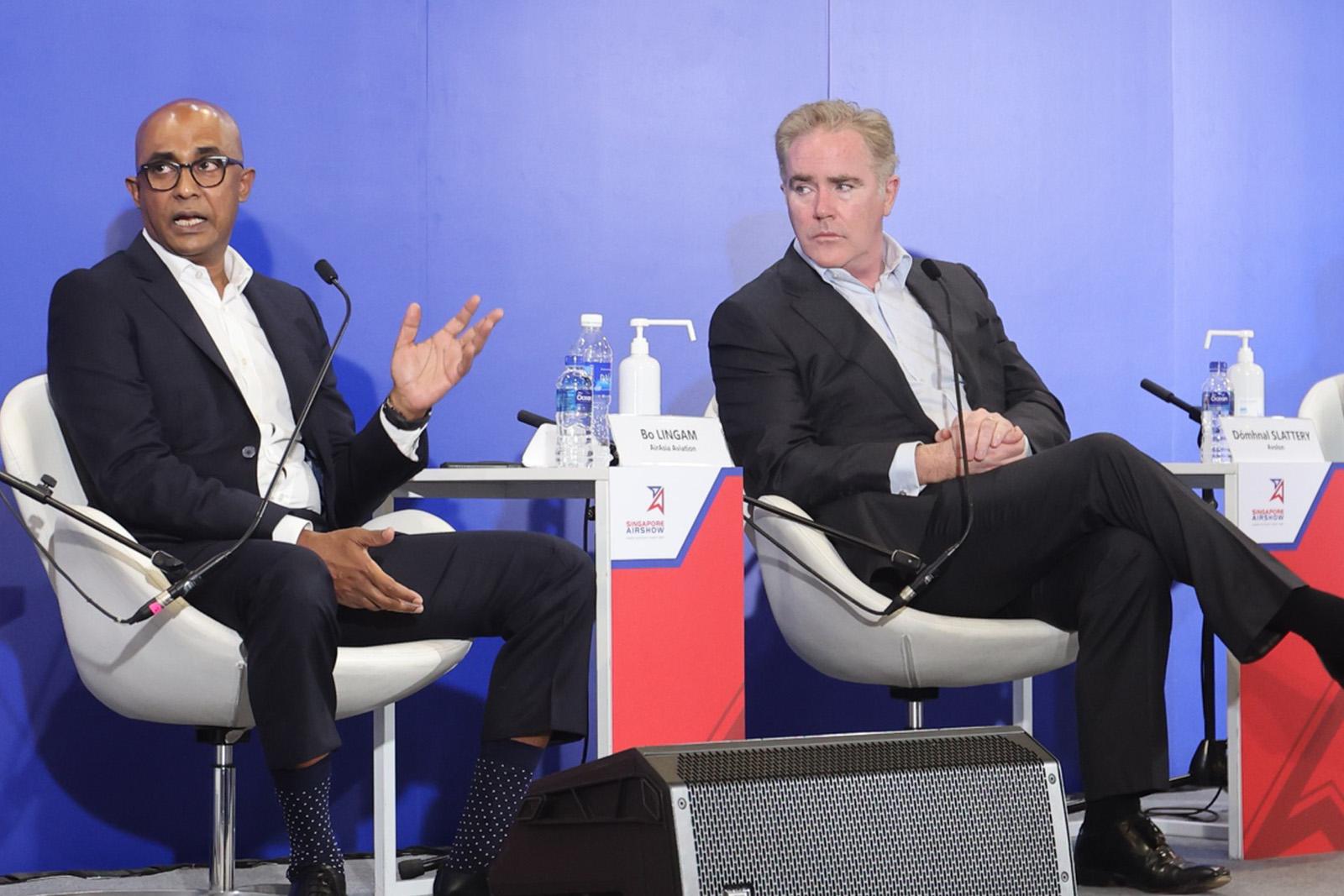
SINGAPORE—Commercial aviation will require massive injections of fresh funding to finance recovery and growth into higher traffic levels, BOC Aviation CEO Robert Martin predicted.
“Most of the restructurings are done,” Martin said Feb. 15 at the Singapore Airshow CEO Forum. But in his view that only solves the initial problems. Substantial additional funding will not only be needed by the airlines, but also by suppliers. “Otherwise we end up in the same situation in 2-3 years,” he said. But unlike in the past two years, where much of the financing came from governments, the additional money will have to come from the debt and equity markets.
Martin sees three main challenges on the way. Rising fuel prices are already having a substantial effect on operating costs, particularly now that many airlines have given up on or significantly reduced hedging programs. There is also the prospect of higher interest rates, led by the U.S. Federal Reserve. Finally, Martin is concerned that wage and commodity price inflation will lead to higher costs for operators, too.
While funding the recovery will be problematic, there is little doubt about strong air travel growth. Avolon CEO Domhnal Slattery pointed to strong pent-up demand for business travel and that many people have saved money during the pandemic that they would now like to spend on travel. Slattery predicted that China would follow other Asian countries in opening up international travel by year-end. “It is an inevitability,” he said.
Martin pointed out that Chinese business and leisure traffic is very important even for airlines in the Asia-Pacific region outside of China.
Slattery opined that the return of traffic will translate into substantial demand for aircraft in 2023 and 2024. He agreed that there was “probably” enough demand for the planned increase in Airbus production rates (to around 65 narrowbodies per month by the middle of 2023), but questioned whether the supply chain can cope with it. In his view, Airbus could end up being “12-24 months behind where they would like to be.” He also pointed to the “slow ramp-up” of the Boeing 737 MAX and that there are currently no 787 deliveries.
“No doubt there are constraints in the supply chain,” CFM International CEO Gael Meheust said. “But we are working on that. The challenge is for the short term.” He said that air traffic will continue to grow about one percentage point higher than global GDP. He considers 2022 a “transition year,” but CFM will return to producing pre-crisis numbers of engines in 2023.
BOC’s Martin said there will be more consolidation in Asia’s airline industry, as well as new startups. He pointed to some consolidation already taking place, through the takeover of Air India by Tata Group, which also owns stakes in Vistara and Air Asia India and the combination of Korean Air and Asiana. “At the moment it happens only on the domestic level,” he noted. The booming freighter market will lead to more carriers entering the space, too.
Avolon’s Slattery pointed to three lessons from the crisis: In his view, airlines do not need to own aircraft; they should instead lease them; and so he expects the share of leased aircraft to increase. Also, in spite of everything “the resilience of the sector is unquestioned.” And finally: “The future of the A380 is as a nightclub.”
